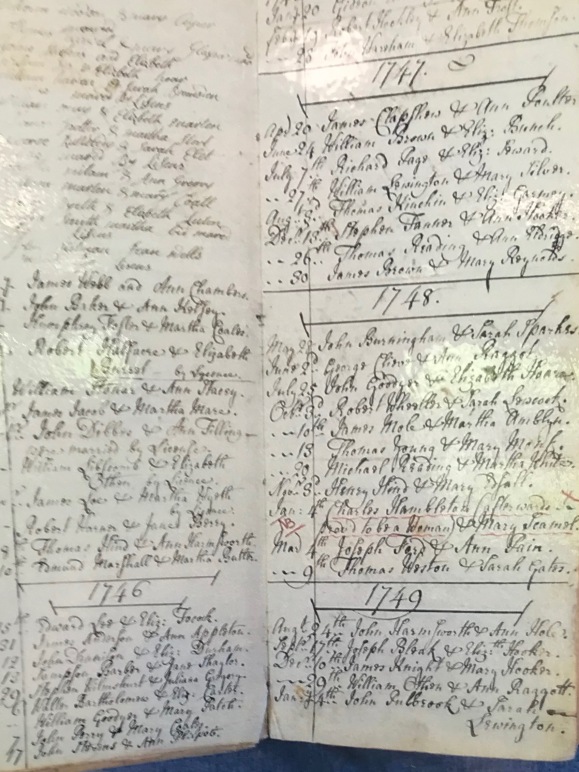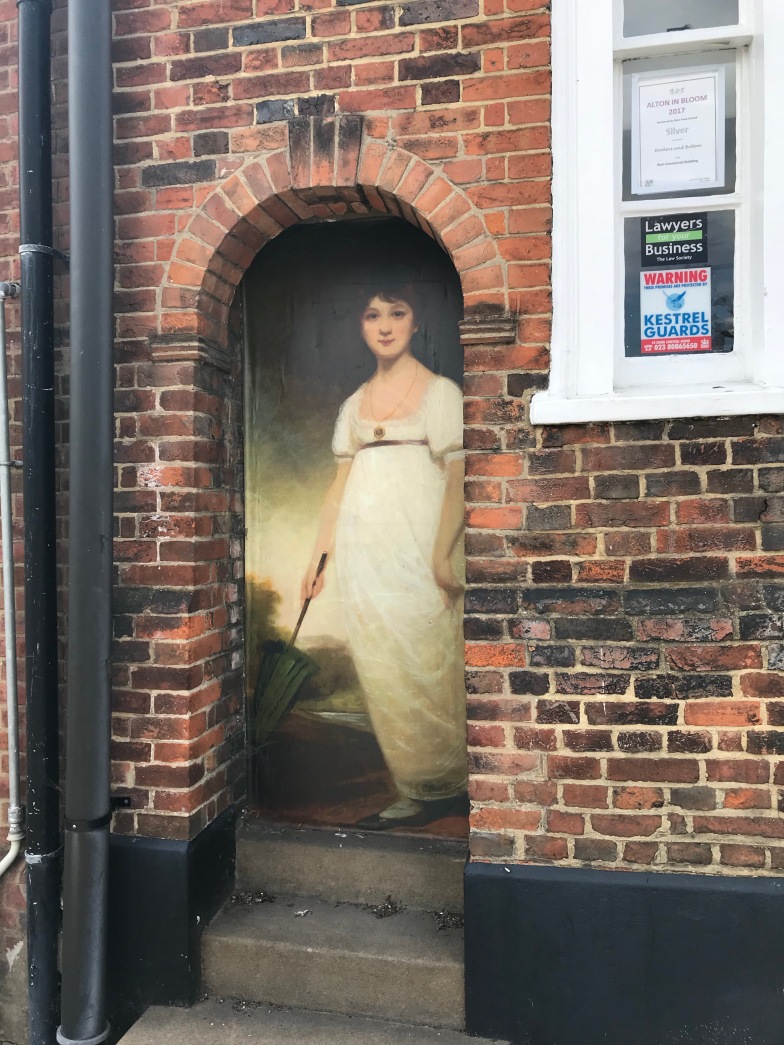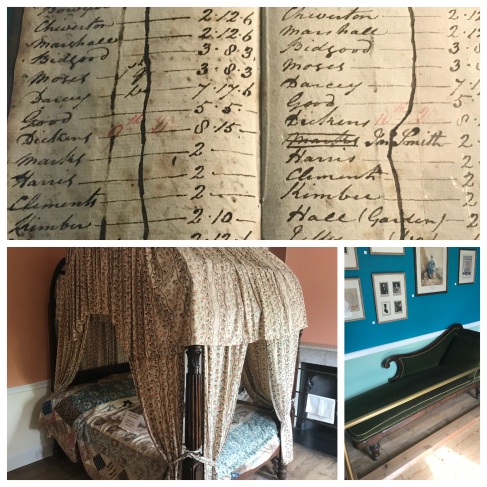Tags
british history, england, freddy mercury, gay, gay and lesbian history, GLBT, hampshire, history, Jane Austen, lesbian, portsmouth, pride, pride and prejudice, shelley, transgender, winchester, winchester cathedral
“You haven’t mentioned me in the blog yet. Just sayin!” – Marc (my partner of some 19 years)
Made you look! Jane Austen may have overturned the conventional traditions when it came to how an educated English lady should fall in love and tie the knot (slowly, mindfully, cautiously – never head-over-heels) but when it comes to sexuality, she was silent. Virtually no scenes take place inside a woman’s boudoir: keep out!
Write what you know, as every creative-writing instructor tells her students. Thus, it’s unlikely that Austen had any first-hand knowledge when it came to sexual love of any kind. A student once asked, puzzlingly, “So did she die a virgin?” We have no way of knowing, I replied; ask her yourself on Tinder or OK Cupid!
Queer truth be told, there’s something strange about a spinsterish life, like a virgin, touched for the very first time; if asexual people exist at all – I don’t know any, myself, do you? – they are the conscientious objectors of erotic life. Jane may have been a member of that very small and inscrutable circle. Let’s face it: her major endowment existed north of the neck. This doesn’t mean that she was a total prude; Her “History of England” includes a playful reference to King James I, a man of such “amiable disposition which inclines to Friendship” and “keener penetration” than “other people.” As I explain below, this is a subtle allusion to the the king’s “pet,” a man named Robert Carr.

Austen’s fiction, then, is no help when it comes to how GLBT+ people lived, and largely suffered, prior to the twentieth century and it was never-ending nightmare until recently…and it remains so in most of the under-developed parts of the world. Donald F. Trump has taken aim at trans people because they’re a minority within a minority and he knows how to throw red meat at his bigoted base.
“Buggery” was declared not just criminal but punishable by death in 1533 and while it’s undeniably gotten better, we still have to fight the bigotry embodied by the aforesaid hypocrite (no paragon of moral virtue) and Margaret Thatcher (her Clause 28 of 1988 sought to stamp out any promotion of “homosexuality” as a “pretended family relationship”). Thatcher was better known as the Iron Lady whereas Trump is America’s Bronze(r) Man. I miss the days when you could actually see the tan lines from his tanning-bed goggles! A cruel pseudo-aristocrat turned populist turned autocrat.
There is no real basis for the claim that Jane Austen, the so-called aunty spinster of British literature, was anything but heterosexual though some rumbling about the matter does exist and you can read the great Devoney Looser on the topic here. My first book was on the Shelleys and while Percy and Mary Shelley were somewhat happily married, there is actual evidence that the two enjoyed the intensity of their same-sex friendships whereas, with Austen, there is zero proof of her Sapphism. Consider, for example, that Percy Shelley tried not once but twice to get his wives (first, Harriet and, later, Mary Wollstonecraft Godwin) to live in a menagé à trois (a household of three) with his “bosom friend” and “brother of my soul” Thomas Jefferson Hogg. They weren’t having it but perhaps because Hogg was a hog or a bore or an eye-sore but who knows? It’s the literature that outlasts us all (bloggers included, I’m afraid to say).
Yet we do care because Percy Shelley carried his interest in, and support for, same-sex love into his prose and poetical writing. Importantly, he wrote, safely living abroad in Italy (where he couldn’t be thrown in the Tower) only the second essay in English to defend same-sex love on moral grounds, and though penned in 1818 as an exculpatory preface to his translation of Plato’s Symposium (that perfidious text of the sex-mad Greeks!), it wouldn’t see the light of day until the 1930s. His widow Mary Shelley didn’t even quite know what to do with it since it made a case for “romantic friendship” as a perfectly normal and natural way to live and love.
Poor Mary: living with a mad genius, she always had a lot on her plate. Mad, bad, and exhausting to know. Even more exhausting to call him your husband. Good grief! For instance, here are the ways in which Shelley addresses Hogg in his early letters, just after the two were expelled from Oxford: “Enter into my schemes – love me as I love you; be as inseparable as once I fondly hoped you were” (from Nov. 1811). He also jokes that he wants to keep his “bosom friend” as his prisoner and, in an Essay on Friendship (which Hogg published for him, in 1858), he describes the overwhelming love he felt for a pre-adolescent classmate that he used to kiss before bedtime at Sion House. He reported all of this to his mother to which she gave him the silent treatment. “She thought me out of my wits, for returned no answer to my letter.” Whatever you do, don’t tell Mom!
Today, I traveled to the once-capital of England, Winchester to visit the grave of Jane Austen, and 10 College Street where she died in July of 1817. She died with her little head on her older sister Cassandra’s knee. I’m going to report on that mecca for my last post later this month but, for now, I’d like to take a brief break from Austen and report on the richly queer history of Hampshire, her rural home in southern England. Below, it was a local’s drawing of Freddy Mercury that got my wheelies spinning!

Portsmouth, after all, was a hotbed for men seeking sex with sailors. In the Navy! In 1957, the Wolfenden Report reported that, after London and Birmingham, Portsmouth was third in terms of “unnatural offenses.” William Williams, a man whose parents named him twice, probably horrified his parents when the 38-year-old was charged with an “assault” on Richard Killin. Contrary to legal opinion, these were consenting adults just doing their thing. In the States, the Supreme Court ruling, Bowers versus Hardwick, would finally protect gays and lesbians from doing just that behind closed doors and in private; before that, in 1986, we were never safe from intrusion and incarceration. This may explain the joke vis-a-vis the Royal Navy and Portsmouth in Mansfield Park, which some reject is a pun on the character Mary Crawford’s part. “Of Rears and Vices, I saw enough. Now do not be suspecting me of a pun, I entreat.”
I was quite impressed that the Hampshire Record Office & Archives, probably in support of June and Pride Month, produced a diorama on the topic and will even sell you a copy called “A Queer A-Z of Hampshire” by Clifford Williams for two quid. Lord Alfred Douglas (the twinky catalyst of Oscar Wilde’s ruination) went to Winchester College between 1884-88. He double-majored in Vanity and Betrayal. The gross indecency belongs soley to Douglas, a true “chancer,” as the British say (or manipulator), and modern-day Judas. If you’re wild about Wilde, you must abhor “Bosie” and his virulent father, The Marquess of Queensberry. An even (red) tie with Don and Don Jr. OK, I’ll stop the political point-scoring because July is my Trump-cleanse.
Here are two sites in Hampshire that may interest you if you wish to travel the yellow brick road of GLBT+ history. Below, you’ll see a marker in Portsmouth for George Villiers, the First Duke of Buckingham. He was King James’s devoted companion and stabbed to death in the Greyhound public house in the old part of the city. In the city’s cathedral, you’ll find a moving memorial to him influenced by his sister, Susanna Countess of Denigh, who subtly acknowledges her brother’s great beauty. His bowels were buried in Portsmouth, beside his sister, but his body buried in Westminster Cathedral. Apparently you can be in two places in once. I don’t mean to make light; another victim of homophobia, King Edward II, died after he had a hot fire-poker stuck up his arse. The intense suffering to which gay people have been subjected is further testament to the angry ambivalence they arouse in their attackers. When victimized, we unleash the animal inside.

Finally, this is an entry in (the village of) Odiham’s marriage records that show that Charles Hambleton and Mary Seamel were wed in 1748 but only later was Charles proved to be a lady. It may be hard to see but a clerk, belatedly alert, circled the names in red (see the right-hand side and just before “1749”). Odiham was never that easy of a place to live: during the Napoleonic war, British soldiers forced their French prisoners to build the canal, which meant digging out of a chalk landscape. Historians such as John Boswell have shown that same-sex marriage dates back to antiquity.

This post is dedicated to all of those who lived their lives openly, or secretly,
and died in the red.
And to Marc who is patiently waiting to join me here in the south of England. In terms of Austen’s leading men, he’s closest to Henry Tilney (of Northanger Abbey) because he’s the queerest and chattiest of her six major heroes.
And that’s just fine by me XOXO





